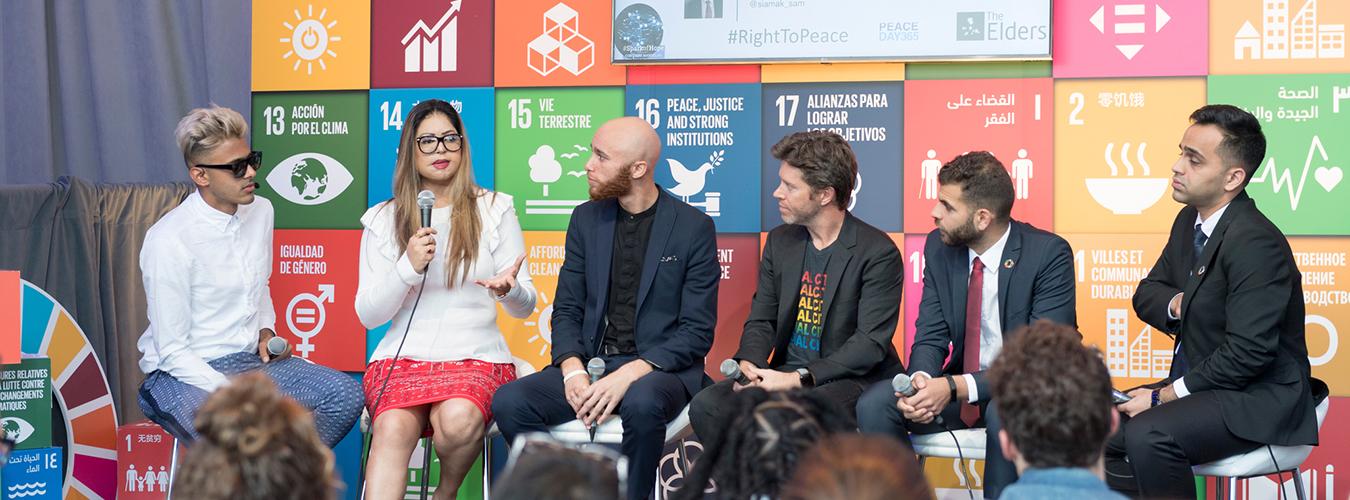
Campaigns and Country Operations
The Campaigns and Country Operations Division (CCOD) works to ensure the United Nations harnesses communications to achieve its goals. We deliver global communications campaigns that support the Organization’s diverse and challenging priorities. We advise on reputation management and crisis communications; and manage a global network of 59 United Nations information centres that engage and mobilize people in the work of the UN in more than 80 languages.
Peace and Security
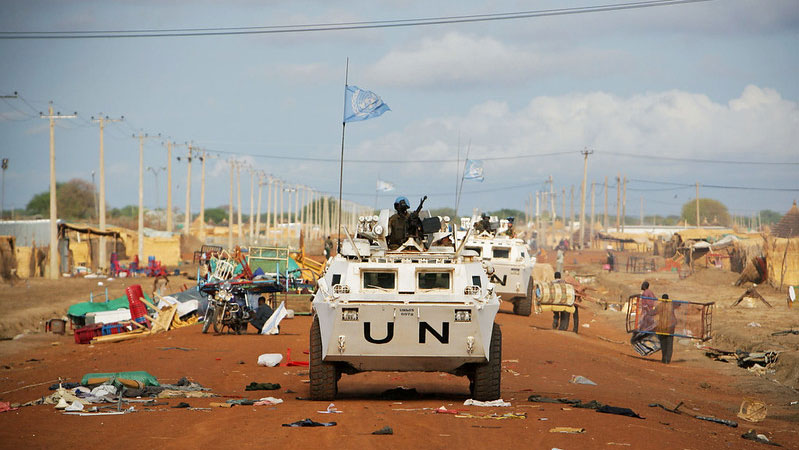
The Peace and Security Section promotes UN work on preventive diplomacy and mediation, peacekeeping, peacebuilding, disarmament, counter-terrorism and migration. In partnership with UN peace operations and political affairs, we design and manage the implementation of global communications strategies; produce and disseminate content and undertake outreach and promotional activities. We work closely with UN partners to support UN peacekeeping and special political missions’ communications by developing policy guidance, training, and advising during crises.
Sustainable Development
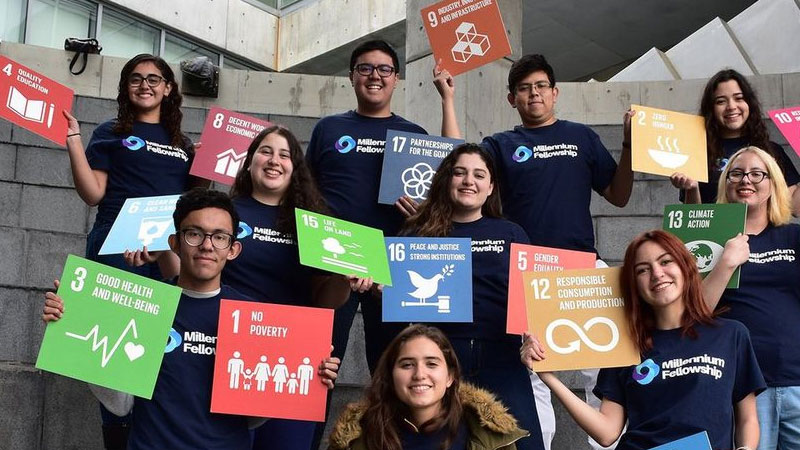
The Development Section promotes the Sustainable Development Goals (SDGs) that guide the UN’s work to boost economic prosperity and social well-being while protecting the environment. Our campaigns build support for action on issues including climate change, gender equality, and global public health. We also engage partners to mobilize awareness of a range of sustainable development issues and how they affect different populations, from the ageing to people with disabilities, and different groups of countries, including the most vulnerable. We work closely with all UN partners for coordinated and impactful campaigns.
Palestine, Decolonization and Human Rights
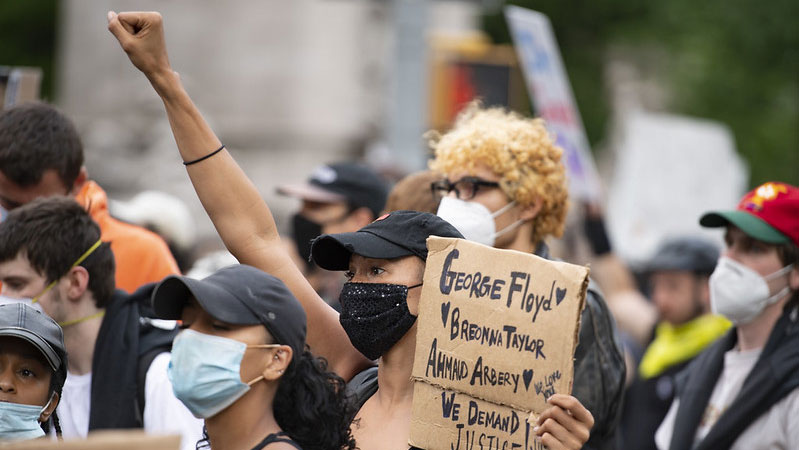
The Palestine, Decolonization and Human Rights Section promotes the UN’s broad agenda on human rights, the rule of law, decolonization and indigenous peoples. It also carries out the Departments special information programme on the question of Palestine. We raise awareness around UN observances on issues such as the dignity of victims of genocide, and the elimination of racial discrimination, and mobilize partners in celebrating Nelson Mandela International Day. We partner with Member States and NGOs to mark the International Day of Reflection on the 1994 Genocide against the Tutsi in Rwanda and educate present and future generations on its lessons to help prevent similar acts in the future.
Africa

The Africa Section promotes the aims of the New Economic Partnership for Africa’s Development (NEPAD) as part of the Department’s efforts to focus global attention on the issues critical to the continent. We work closely with the Office of the Special Adviser on Africa and the Economic Commission for Africa, as well as with the media in Africa and beyond to highlight the work of the UN, Africa and the international community to foster peace and development. Our Africa Renewal Online resource provides information and analysis of the major economic and development challenges facing Africa today.
United Nations Information Centres worldwide
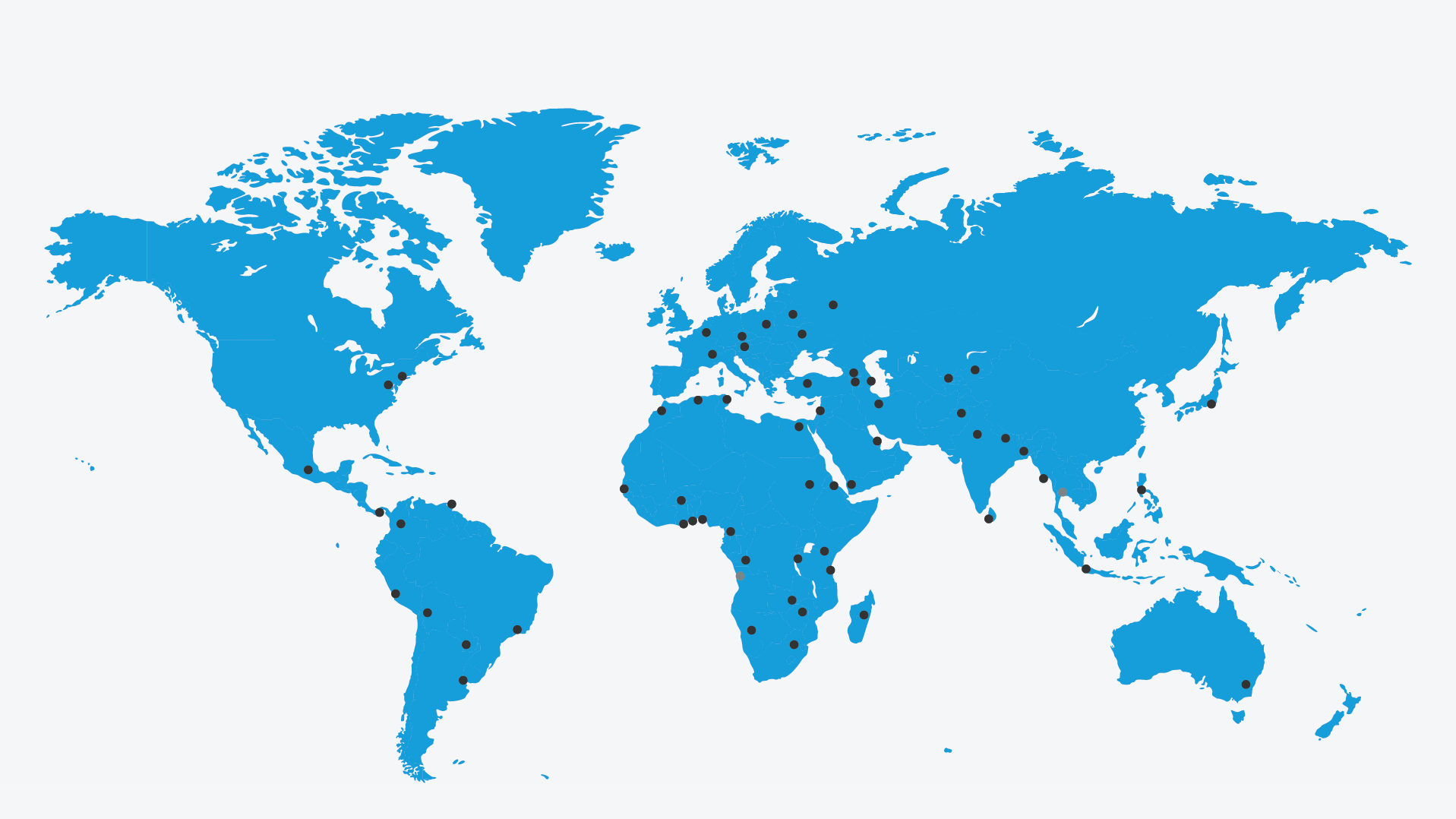
The network of United Nations Information Centres is key to the Organization’s ability to reach the peoples of the world and to share the United Nations story with them in their own languages. These centres, working in coordination with the UN system, reach out to the media and educational institutions, engage in partnerships with governments, local civil society organizations and the private sector, and maintain libraries and electronic information resources. The network of UNICs gives global messages a local accent and helps bring the UN closer to the people it serves.
Social Media
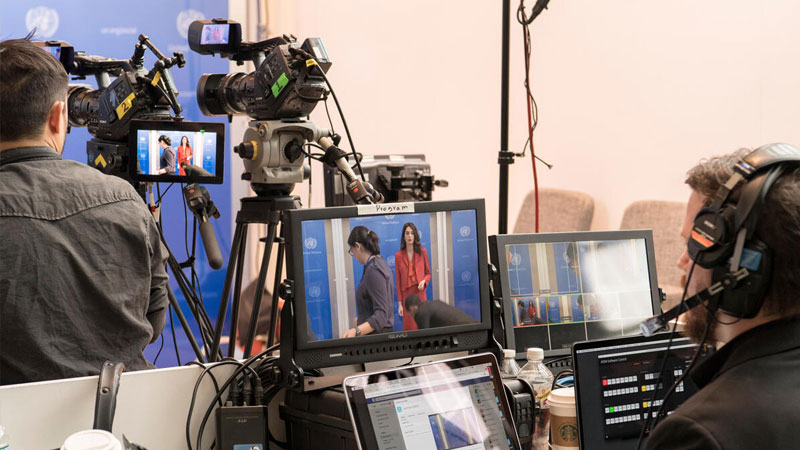
The Social Media Section works with partners across the UN system on social media campaigns and information designed to bring the work of the UN closer to millions of people everywhere, every day in Arabic, Chinese, English, French, Russian and Spanish plus Kiswahili and Portuguese. We help manage the United Nations’ relationship with major social media platforms including Facebook, Instagram, LinkedIn, Snapchat, TikTok, X (former Twitter), WeChat and Weibo; develop policies and procedures for the use of social media platforms by the UN; and provide social media guidance and support to UN officials and Member States.
